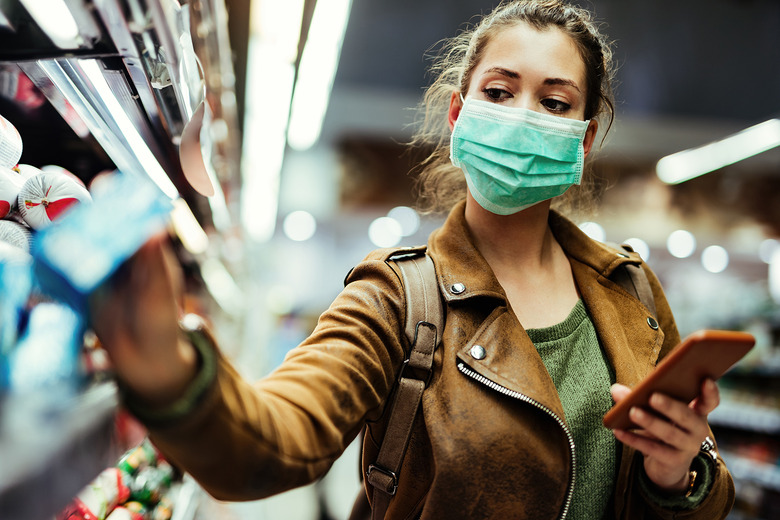Apple And Google Show What Coronavirus Contact Tracing Apps Will Look Like
- Apple and Google released concept images of how a coronavirus contact tracing app built on top of their common API would look like.
- The screenshots explain how a user can enroll in the process, how they can register a positive COVID-19 diagnosis, and how exposure notifications will look like.
- Neither Apple nor Google will build tracing apps of their own. Instead, authorities will rely on the API to code apps for their countries or communities.
- Visit BGR's homepage for more stories.
Apple and Google have developed a standard API that authorities can use to create coronavirus contact tracing apps for specific countries or communities. These apps rely on a phone's Bluetooth connectivity to ping nearby devices and create local records of that handshake. When one of those users reports they have been diagnosed COVID-19 positive, a database will record that event. The phones enrolled in the tracing program will check that database with some regularity, and that's how they'll discover a record that one of their contacts tested positive in the past 14 days. That's when the user of the phone is notified that he or she may have been exposed to a coronavirus patient at some point in the past couple of weeks. Everything happens anonymously, with randomized ID numbers being assigned to phones and end-to-end encryption protecting data transmission. No user data is collected in the process, and users can opt out of the contact tracing app if they so desire. The whole concept is a lot easier to explain with images, and Apple and Google have both released concept screenshots of how these apps may look like.
We've been referring to Apple and Google's coronavirus contact tracing tool as an app all along because it's a lot easier to conceptualize it as such. It's important to note that it's not Apple or Google that will create these apps, but developers working in connection with local governments and medical authorities looking to employ technology for contact tracing purposes.
However, the screenshots below show what these apps will look like. Apple and Google's concept apps inform the user of what's going on with the app when signing up for participation, explaining at every step of the way what's going on, regardless of what phone you use.
iPhone: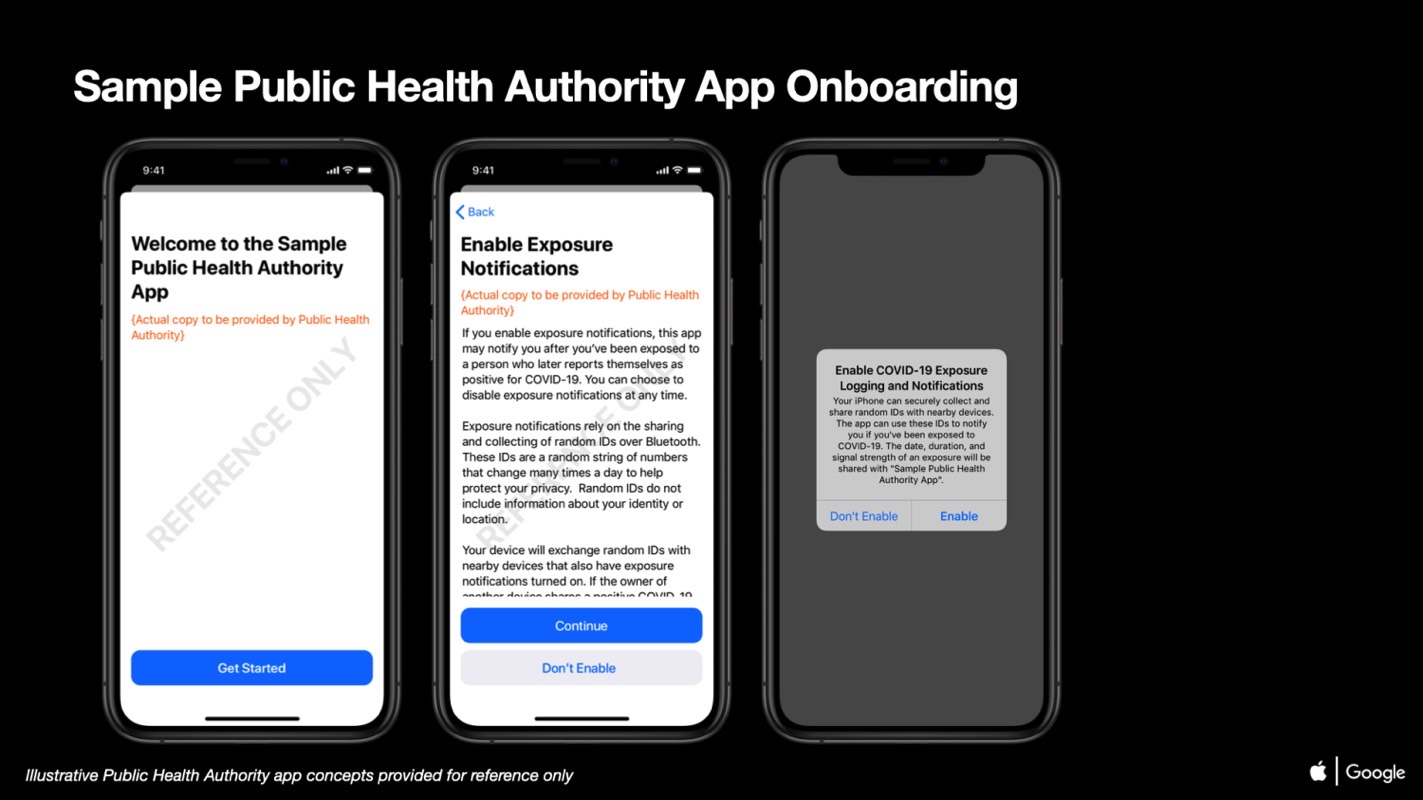 Android:
Android: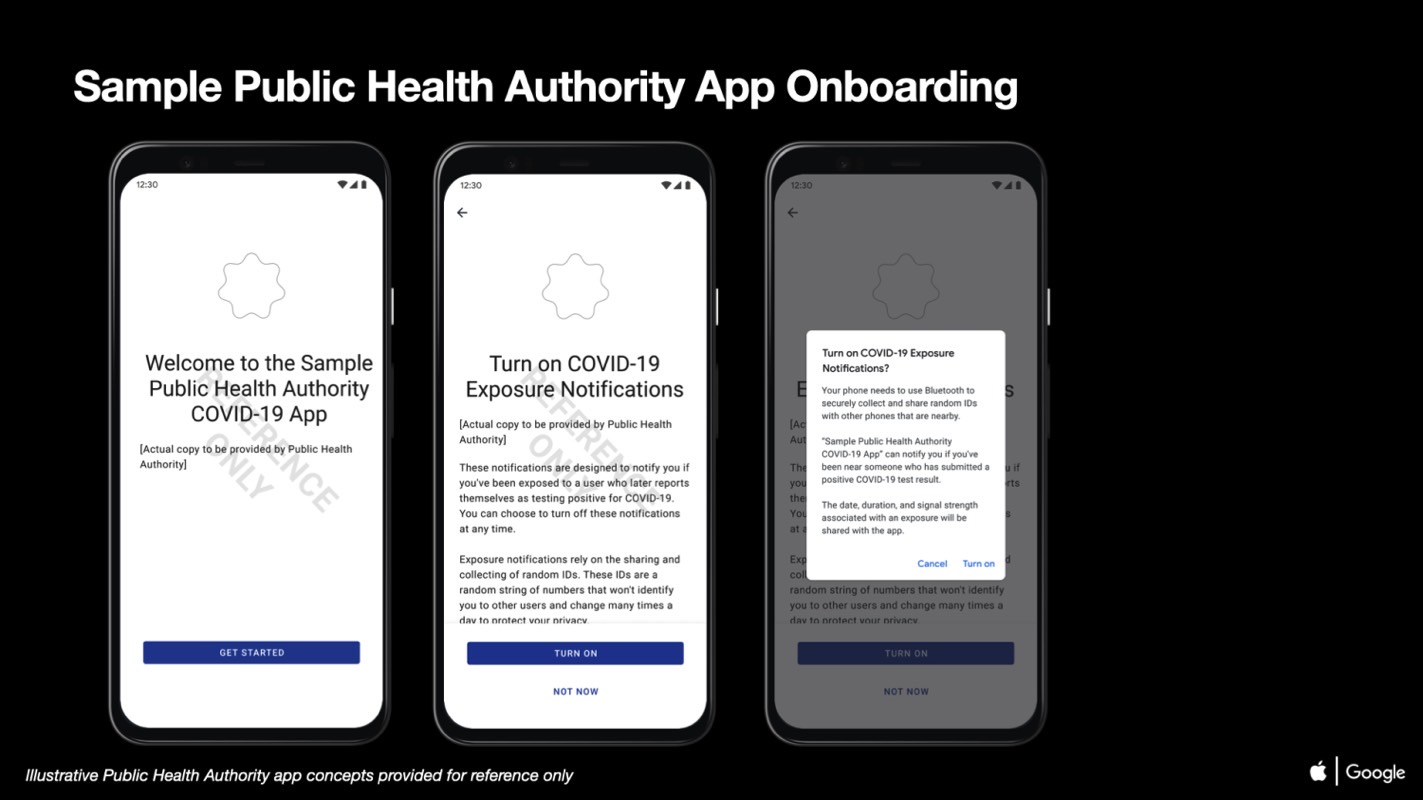
The following set of screenshots show how a user would tell the system that they've been diagnosed COVID-19 positive. The next set of images shows that the user will have to provide some sort of verification to validate their diagnostic. That means only users who were tested will be able to share a positive diagnosis with the app, and this will prevent potential abuse.
iPhone: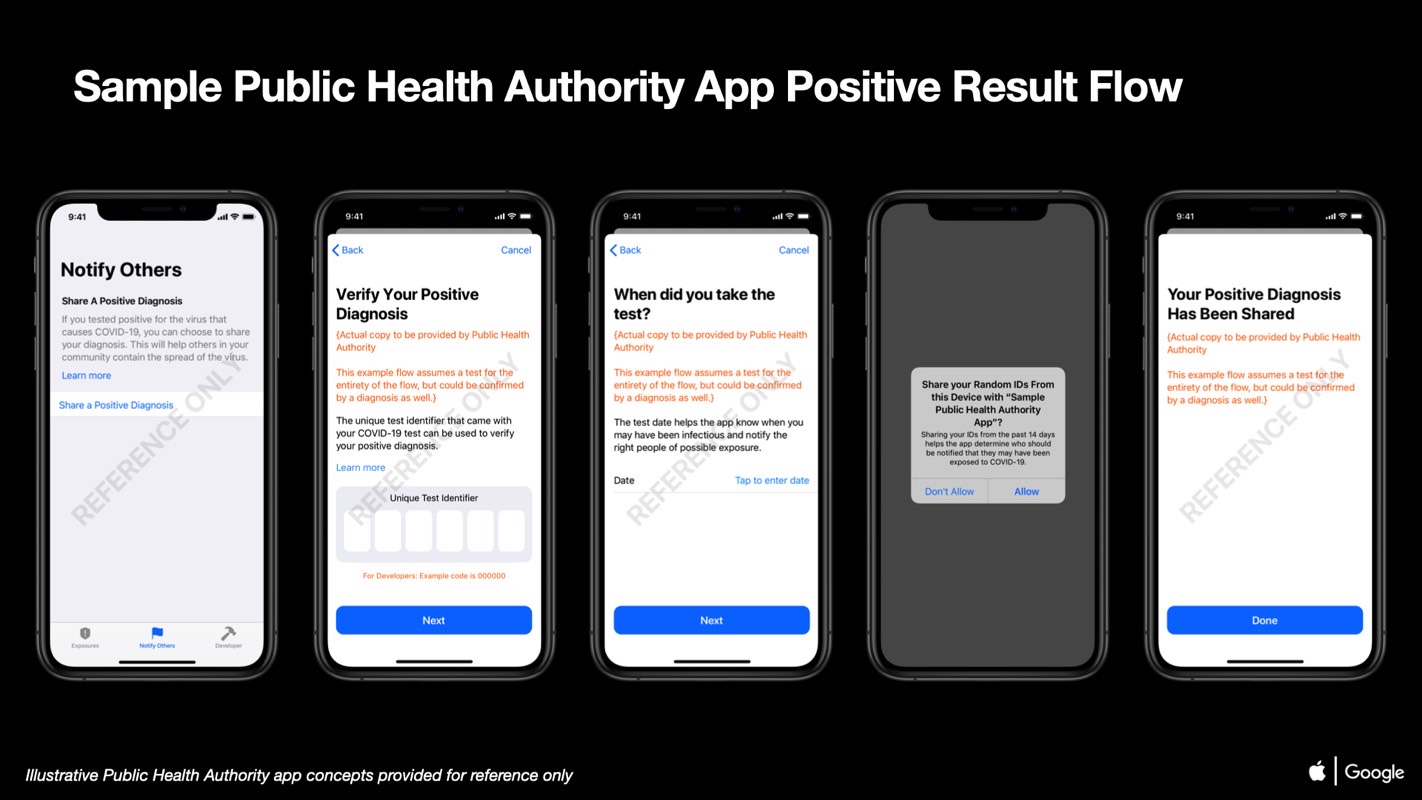 Android:
Android: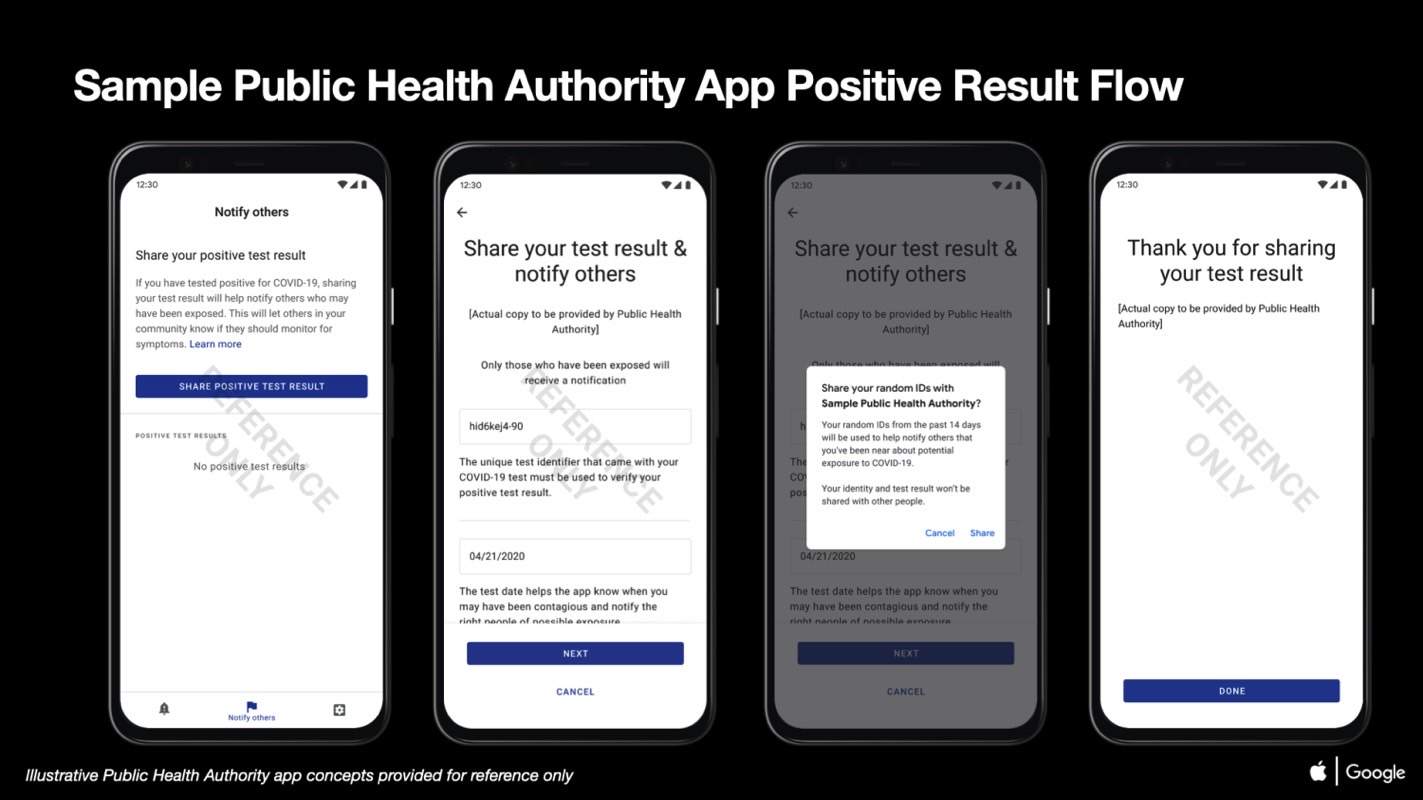
The following set of screenshots reveal how notifications will look like when the app tells a person they were in the proximity of a COVID-19 patient. The app will notify you when the contact happened and provide instructions on what steps to take.
iPhone: 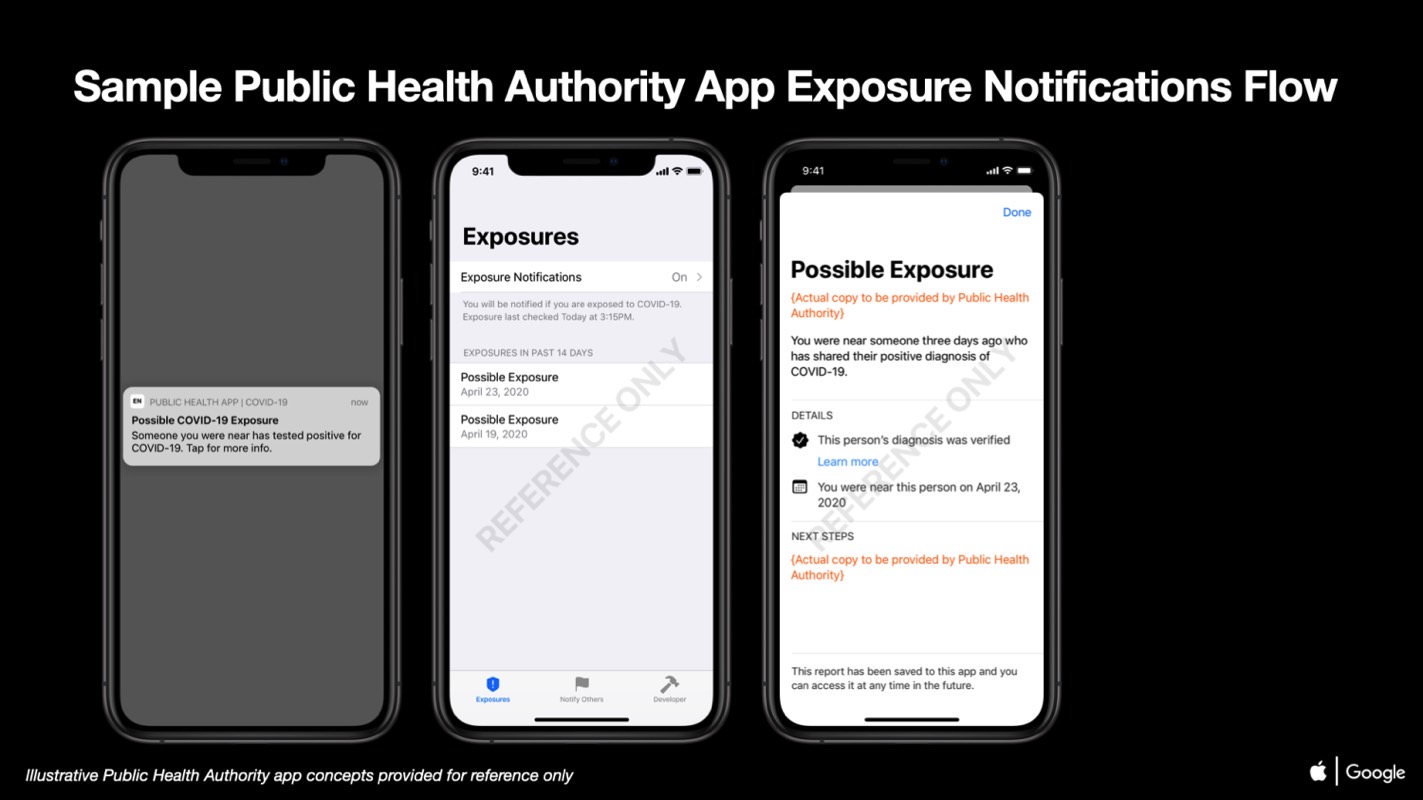 Android:
Android: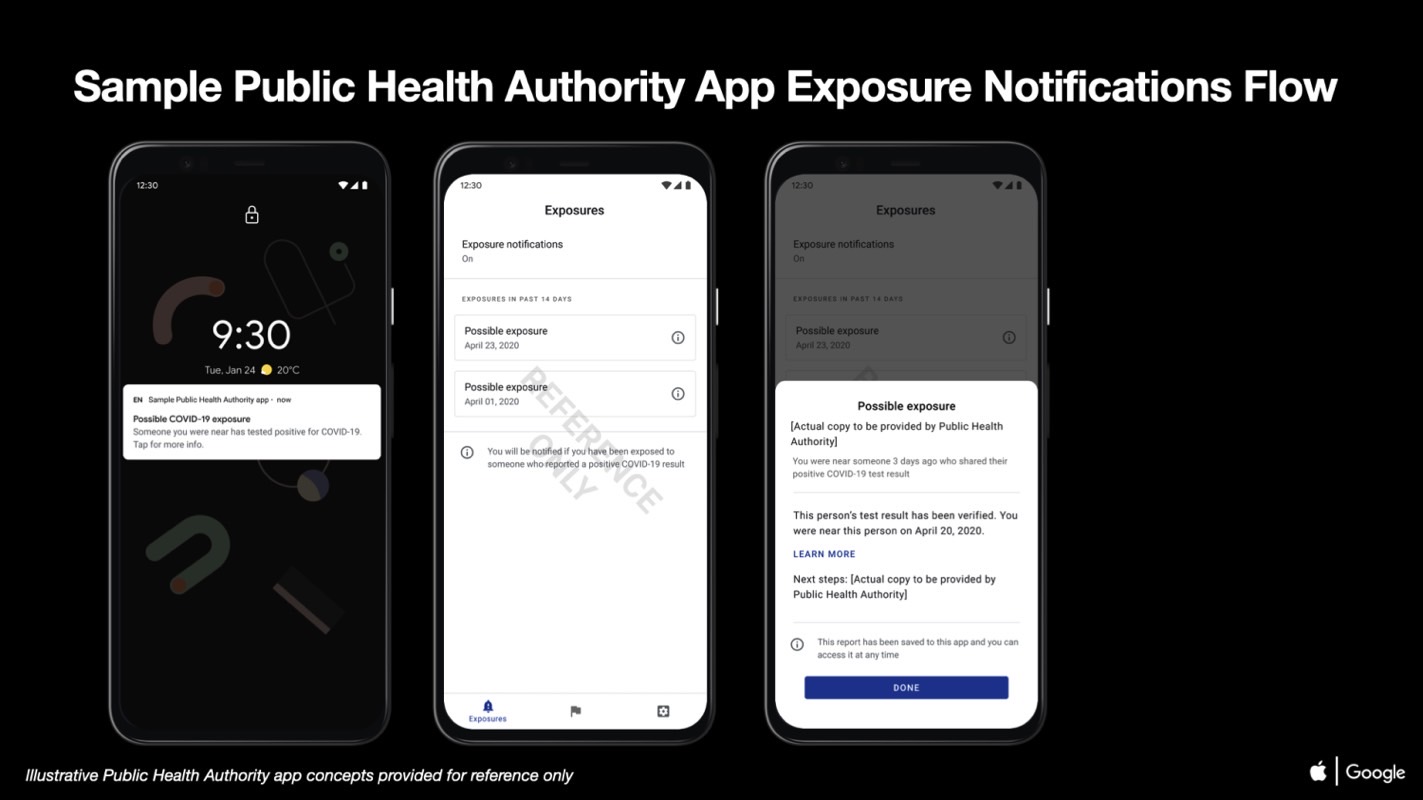
Finally, the next set of screenshots shows how an iPhone or Android user can opt out from COVID-19 exposure logging. The same screens will also show you the number of exposure checks and let you delete the data stored on the phone, which is a log of Bluetooth handshakes with other iPhone and Android handsets.
iPhone: 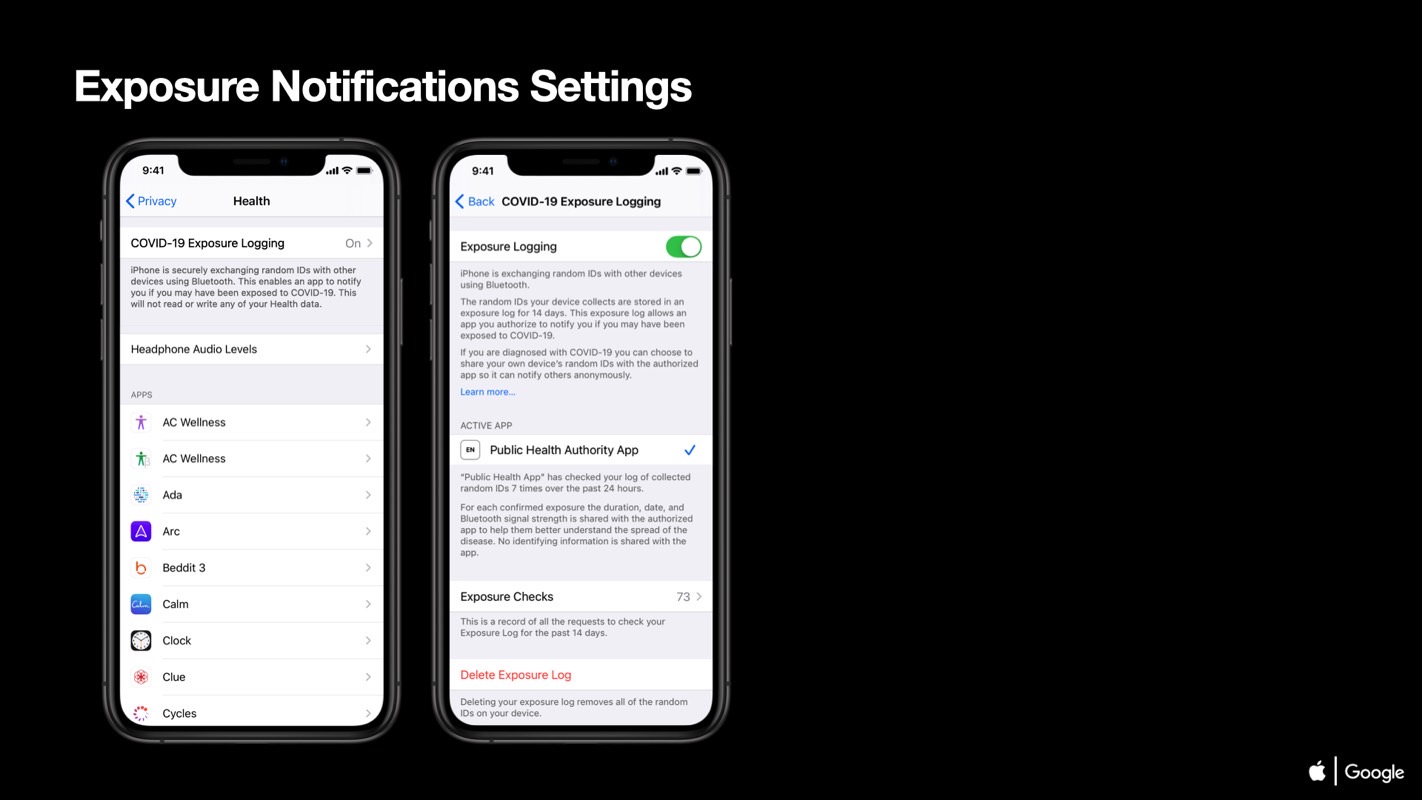 Android:
Android: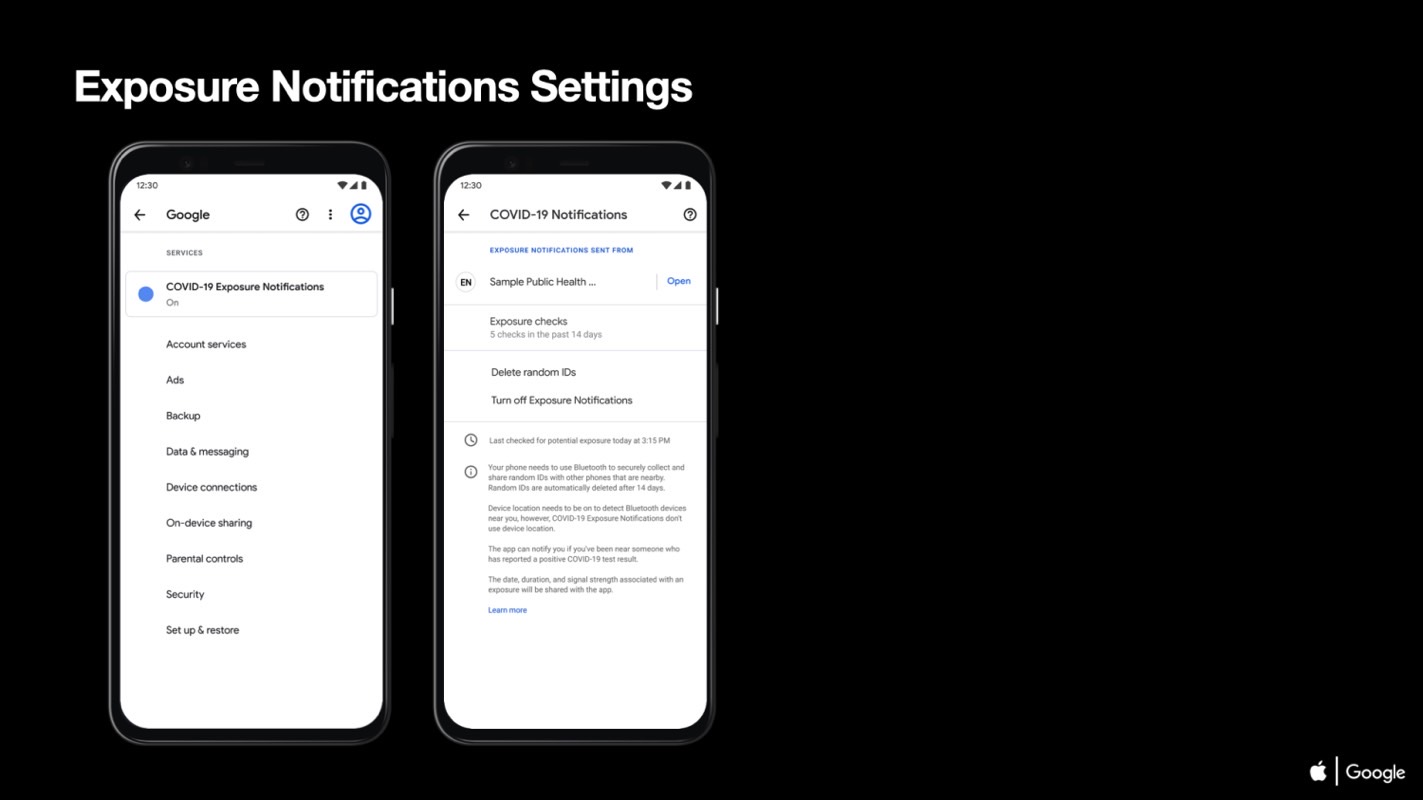
Some countries will use the Apple-Google API to build their own apps soon, Germany included. Others, like the UK and France, will go forward with apps that might not be as mindful of privacy, as they could collect additional data about users.
